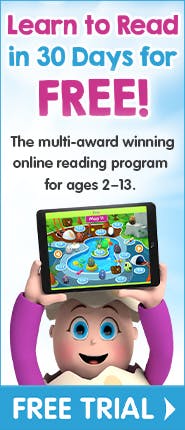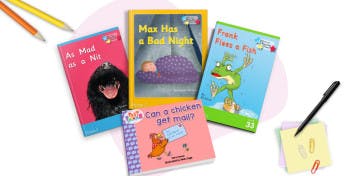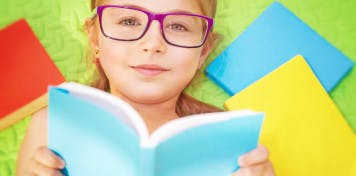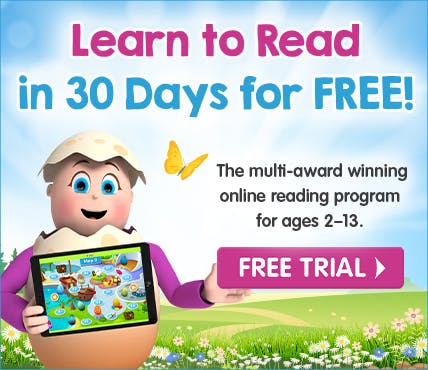


8 Tips for Choosing Books for Kids
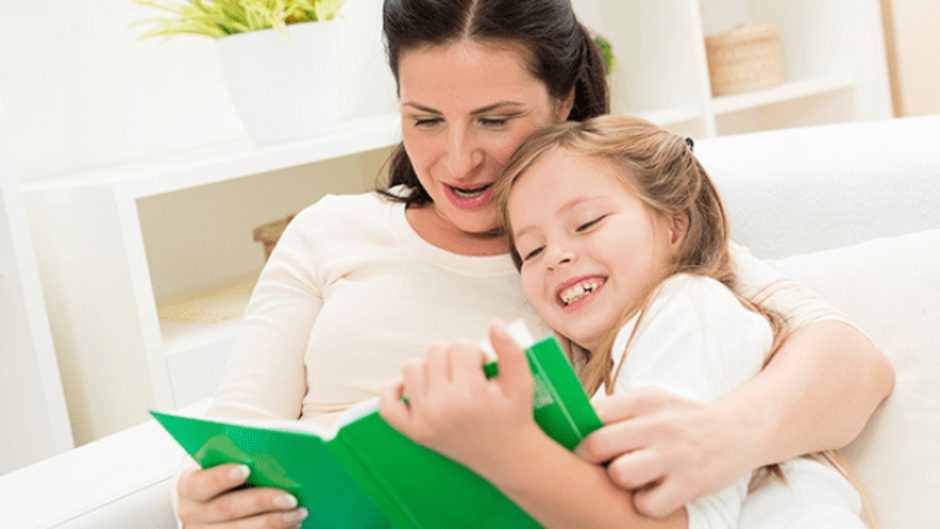
Unlock over 4000 children's books for kids in the Reading Eggs online library. Free trial
Choosing the right books for your child is important; getting it right the first few times can spark the beginnings of a lifelong enthusiasm for reading. So how can you spot a good children's book amongst the dizzying variety of titles and genres?
The most memorable books from childhood are usually the ones which include vivid imagery, exciting stories and interesting characters.
Access 4000 online children's books for FREE!
Start your free trial of Reading Eggs and let your child enjoy the children's book library, as well as hundreds of phonics and reading lessons that are fun and highly interactive.
Here's what you can look out for:
1. Choose good books that are easy to relate to
Choose books that allow your child to explore different worlds and lives but are still familiar enough that they can see themselves in the characters. Even if it's a story set in an imaginary world of monsters and fairies, if the characters have hopes and desires that are easy to relate to, your child will be more interested in reading it until the end.
2. Opt for books that teach kids important things
Whether it's learning a timeless moral in The Tortoise and the Hare or learning about numbers, fruit and days of the week in The Very Hungry Caterpillar, the best books often teach things without us even realising it. Choose books that deliver an important message or subtly teach essential skills such as the alphabet, counting, colours or seasons.
3. Choose books that may not be your personal pick
Children's author Libby Gleeson suggests that when choosing a good book for children, parents should “resist the desire only to feed their children the books they loved when they were young”. Your child may not share the same passion for your childhood classics, and, as Gleeson notes, “The world has changed and children have changed.”
4. Find books that are not too difficult to read for kids
Use the Five Finger Rule if your child will be reading on their own. If the book has a few difficult words, read aloud together with your child.
There's nothing wrong with exposing children to more complex language in context. But if you know the language and concepts will be too difficult for them to enjoy the story, avoid putting them off reading altogether by choosing a simpler book.
For beginners, try decodable readers that build confidence by starting with simple words and gradually introducing more complex words.
5. Look for kids' books with strong illustrations
Vivid and clear imagery that supports the story is powerful for early readers aged 4–8. Choose books that have good illustrations that correspond with the storyline. Wordless books are also a great way to develop your child's language skills, as they require readers to interpret the illustrations as the story progresses.
6. Choose books that are fun to read aloud
How many times has your child requested yet another reading of Dr Seuss? Books that rhyme or have a good lyrical flow are fun to read aloud and listen to. Read with enthusiasm and use different voices for different characters to bring the reading experience to life.
7. Look into kids' books that are trending
Talk to your child's teacher, librarian, or other parents to find out about popular children's books. Alternatively, search the web for award-winning children's book lists and online stories for kids, or hop onto book review sites to read what other parents are suggesting. Social media is another good source – jump on TikTok and check out what’s trending.
8. Good books can simply be the books your child desires
At the end of the day, what makes a good children's book is any age‑appropriate book your child wants to read! Let your child choose which books they would like to read, because choosing to read over not choosing to read is a significant step towards a lifelong love of reading.
Learn more about the Reading Eggs online library for kids.
Access 4000 online children's books for FREE!
Start your free trial of Reading Eggs and let your child enjoy the children's book library, which includes a wide range of nonfiction books.
